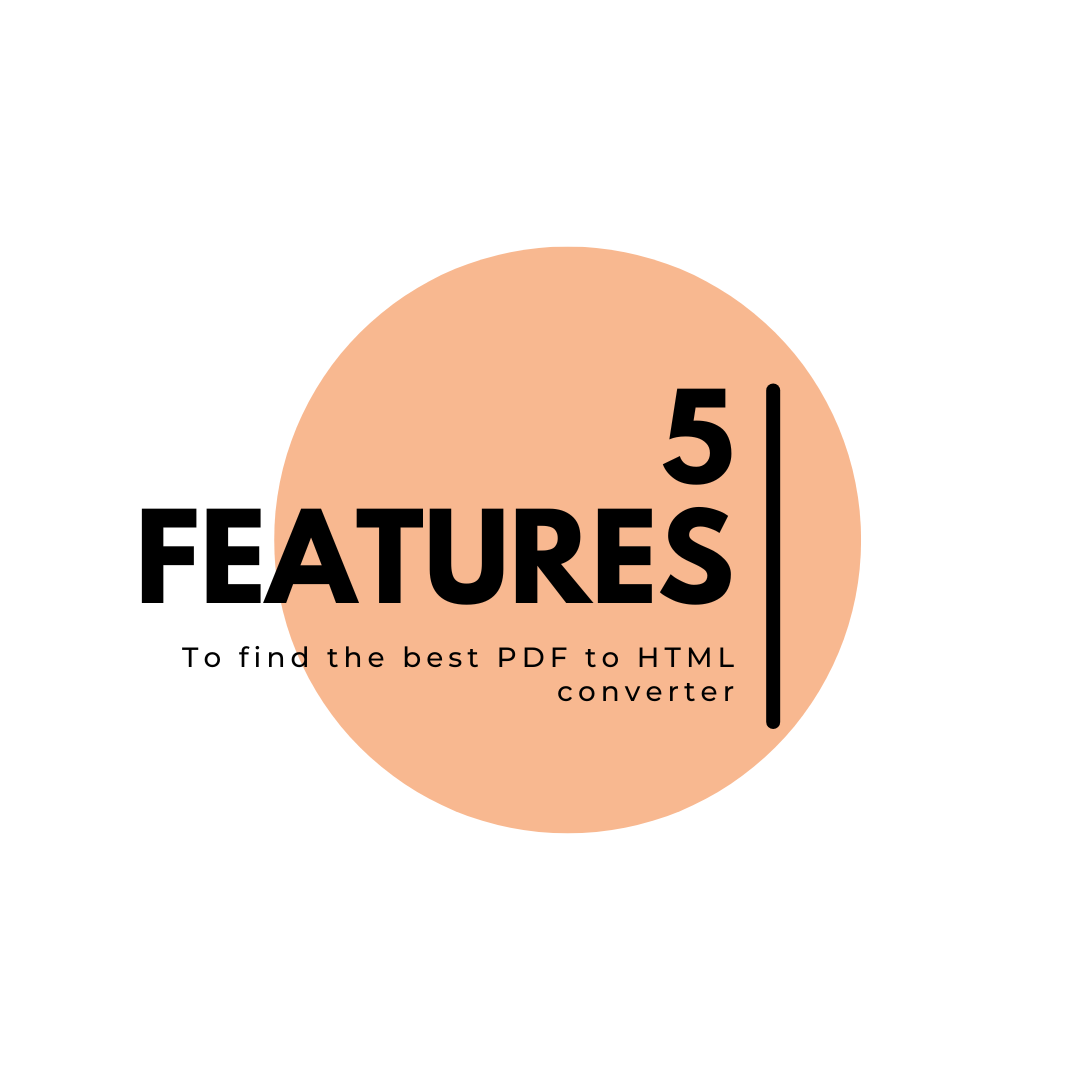There are lots of PDF to HTML converters out there and each one has a different tunnel of features. Making sense of and understanding each and every feature can be difficult.
So what is really important?
This article is going to look at 5 Key features that we believe are most important when trying to find the best PDF to HTML converter.
- Accuracy of the conversions
- File size
- Text quality
- Security
- Technical Support
1. Accuracy of the conversions
With HTML5 you can get a very good visual version of most PDF files. Ideally, you want to convert text to text, images to images and vector content to vector content. But this is not always possible. PDF and HTML are different formats. Simple ‘documents’ can easily be translated into an exact HTML5 version. Complex PDF features like blending, individual kerning and complex shading may need to be rasterized to appear correctly in HTML.
So having a converter that has different modes to fit the variety of PDF files would be highly recommended. Just know there is no optimum right way to convert all PDF documents, so having the option of alternatives makes sense.
2. File size
The smaller the file size, the faster it will load on your screen and the less memory it will need (still important on some phones).
PDF was designed as a super-compact container size (every byte matters) and it has lots of clever tricks to compress the data. Generally speaking, an HTML version will be slightly larger but it will still be a lot smaller than an Image version of the page.
But the PDF is a single file containing all the pages, while every HTML file can be a separate file. This means it has the ability to load up pages individually means that it is displayed at a much faster time. Instead of loading the whole PDF document in order to access the pages.
3. Text quality
Most PDF files contain text which is displayed using embedded PDF fonts. These need to be converted to HTML fonts if you want to get proper HTML text which looks correct.
Because this is a very complex process, many PDF to HTML converters cheat’ by trying to use web fonts (which do not look the same) or create an image of the page with invisible text on top. This creates much bigger files and search engines may not identify the text.
4. Security
Cloud services will take your document and upload it somewhere in the Cloud for conversion (you never know where).
If you are working with confidential or important documents, we would recommend you use a system that works within your servers and firewall. Or research carefully any Cloud services before you use them.
5. Technical Support
Because PDF and HTML are different languages, you are always likely to run into issues with some problem files in conversion. These are not generally issues you can fix.
So if conversion is important to you, we recommend using a service that provides support and is being actively developed. Having a point of contact with a team of developers to sort out these issues would save a lot of hassle and stress on your side.
Final thoughts
During our 10 years of experience working on PDF to HTML conversions, these are the top 5 issues we have seen being raised as most important to our users. What key features do you believe make the best PDF to HTML converter?
BuildVu allows you to
| View PDF files in a Web app |
| Convert PDF documents to HTML5 |
| Parse PDF documents as HTML |
What is BuildVu?
BuildVu is a commercial SDK for converting PDF files into standalone HTML or SVG.
Why use BuildVu?
BuildVu allows you to integrate PDF into your HTML workflow effortlessly and securely by producing clean HTML that is easy for developers to work with.
What licenses are available?
We have 3 licenses available:
Cloud for conversion using the shared IDRsolutions cloud server, Self hosted server option for your own cloud or on-premise servers, and Enterprise for more demanding requirements.
How to use BuildVu?
Want to learn more about BuildVu and how to use it, we have plenty of tutorials and guides to help you.
